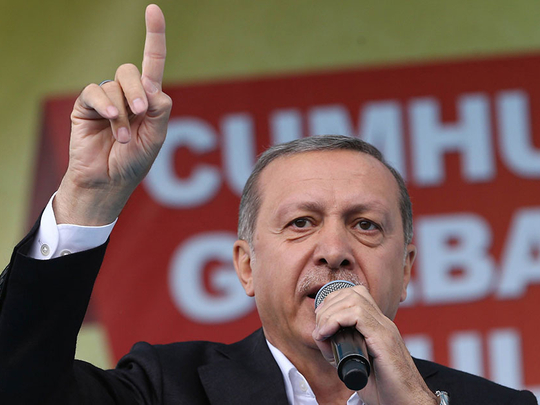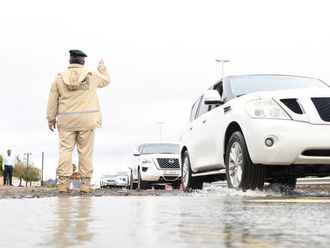
Even by current standards, the Turkish government’s reaction to the publication of leaked video footage that purports to show the country’s intelligence agency running weapons into Syria, is extreme.
President Recep Tayyip Erdogan has intervened personally in the case. He called the report by Cumhuriyet — a secularist daily with a circulation of about 50,000 — an act of espionage and said the author would “pay a heavy price for this.”
He then filed a complaint with prosecutors, demanding that the writer Can Dundar (also the daily’s editor-in-chief), be charged with a range of crimes that carry maximum sentences of life in prison plus an additional 42 years in jail.
Admittedly, the government has been suppressing Turkish media freedoms for years. And on Tuesday, Erdogan told state television that the New York Times, the BBC and CNN were operating as tools in a foreign plot managed by a “superior mind.”
They have been trying to split and weaken Turkey for at least a century, he said, since the Times cheered attempts to strip the last Ottoman Sultan, Abdul Hamid II, of some of his powers. Enough said.
Even so, asking for multiple life sentences for publishing footage whose authenticity can’t be verified but also hasn’t been clearly denied by the government, and which concerns an event confirmed by the prosecutor and police who stopped the trucks in January last year, is extreme.
One obvious part of the explanation is that Turkey is having an important election on Sunday. No doubt that factored into Dundar’s decision to publish, as well: Dundar’s is an opposition newspaper, after all. Yet in countries with press freedom, making the public aware of government actions is the essence of a journalist’s job, no matter what the motivation.
Erdogan’s sensitivity is about more than timing, though. Earlier this year, he also shut down investigations into serious corruption allegations against his government, without demonstrating which of them were false or explaining the physical evidence that investigators and prosecutors had produced. These allegations barely moved the needle on public support for the president and his party. I suspect that’s largely because Turks are accustomed to thievery by their leaders and understood that the charges, even if true, were politically motivated.
The Syria incident is different. Even among Erdogan’s most ardent supporters, there is concern over the number of Syrian refugees that Turkey has admitted since the war started four years ago. Officially, the number is 1.6 million. But many are unregistered, so the number may be double that. In southern Turkish cities such as Gaziantep, restaurants and businesses are delighted to be able to hire Syrians under the table at half the salary they would need to pay Turkish citizens. At a time of slowing economic growth, however, that creates wage competition for the poor, and pushes up rents. Fewer than 250,000 of the refugees live in camps, and that means a lot of demand for apartments.
Turks also know that a fraction of those refugees are fighters and supporters of extremist groups such as Daesh (the Islamic State of Iraq and the Levant) and the Al Nusra Front. This is a potential time bomb that could, at the least, deter some of the 37 million tourists who visited the country last year, if militants should start detonating bombs in coastal bars.
For Erdogan, proof that the government has been shipping weapons to Islamist militants in Syria is potentially dangerous. The official line when the story broke that trucks had been stopped at the Syrian border was that, yes, these were run by the National Intelligence Organisation, but they were delivering aid to ethnic-Turkmen inside Syria. The government has stuck with that story, but Cumhuriyet’s images of weapons suggest the freight wasn’t just “aid” for Turkmen villagers, but arms for the extremist militias Turkey supports.
By attacking the messenger and trying to rally Turks against a mythical foreign plot, Erdogan and the Turkish prosecutor are diverting attention from an unpopular policy that could cost the government crucial votes in a finely balanced election.
— Washington Post










